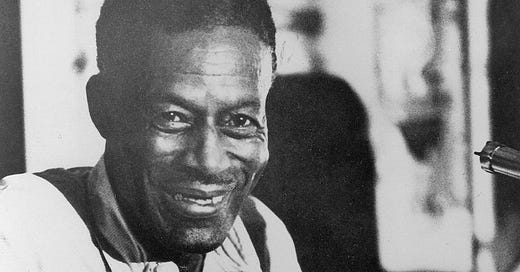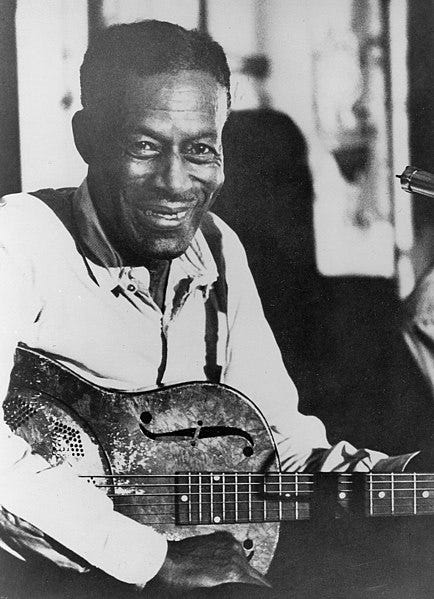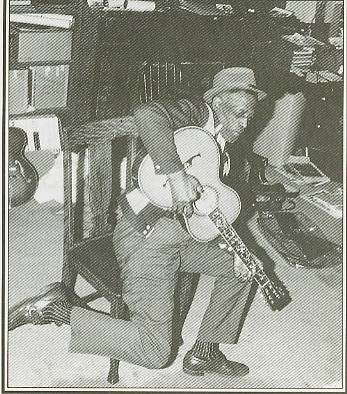The Great 1930 Mississippi Delta Blues Session, Part 1
Son House, Charley Patton, Willie Brown, and Louise Johnson at Paramount
Like most of the American South in 1930, the Mississippi Delta was experiencing one of the worst droughts on record. One day that summer Arthur Charles Laibly, manager of sales and recording for Paramount Records, stopped off in the Lula, Mississippi, train station to meet with Charley Patton. With the recent death of Blind Lemon Jefferson, Patton was the closest the label had to a recording star. Laibly invited him to return to Grafton, Wisconsin, in August for a third session before his one-year contract expired. Patton agreed to go.
Laibly encouraged him to bring along other musicians he felt could make good records. Before continuing his journey to Texas, Laibly handed Patton $100 to cover food and other travel expenses. At a time when field hands earned about 75¢ a day, this was a princely sum.
By then, the 44-year-old Patton had already recorded dozens of sides for Paramount. His debut session, held in June 1929 at the Gennett facility in Richmond, Indiana, had yielded “Pony Blues,” “Banty Rooster Blues,” “A Spoonful Blues,” and other essential early Delta blues recordings, as well as a few spiritual sides. Four months later, he’d made 28 records at the new Paramount studio in Grafton, including the now-classic “Elder Greene Blues,” “Frankie and Albert,” and two-part “High Water Everywhere.”
Patton’s first choice to accompany him on his return to Grafton was Eddie James “Son” House, whom he’d met earlier that year. Unlike Patton, described by contemporaries as a “clowning man” with a guitar, the 28-year-old House took his music mighty seriously. Sitting on a straight-back chair, he’d suddenly whip his head back, roll his eyes skyward, and slide a bottleneck up his guitar strings. Veins bulging in his forehead, he’d moan, thump a bass note, and sing with deep conviction. As his debut session would soon reveal, Son’s songs were intense, anguished, and as powerful as any Delta blues on record.
Two years earlier House, who’d spent years as a field worker and preacher in Mississippi and Louisiana, had shot and killed a man at a Saturday night frolic in Lyon, Mississippi. He pleaded self-defense. Convicted of manslaughter, he was sentenced to serve 15 years on a penal farm. A judge reviewing the case freed him two years later. Soon after that, House met Charley Patton in Lula. House had heard Patton’s 78s and regarded him as the Delta’s most famous bluesman. They performed together at local jukes and eventually became, in House’s words, “like brothers.”
Keep reading with a 7-day free trial
Subscribe to Talking Guitar ★ Jas Obrecht's Music Magazine to keep reading this post and get 7 days of free access to the full post archives.




